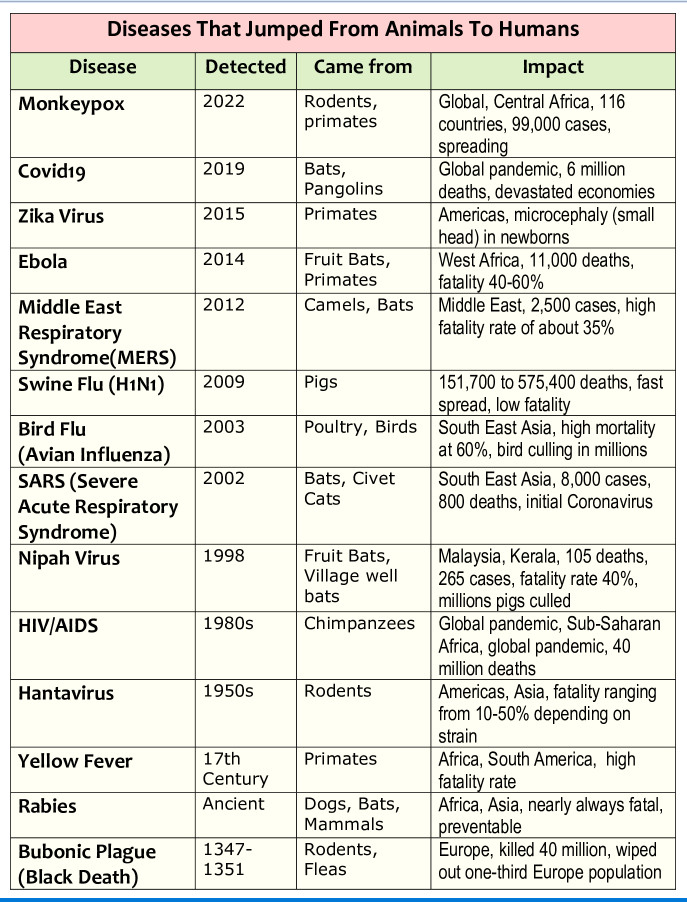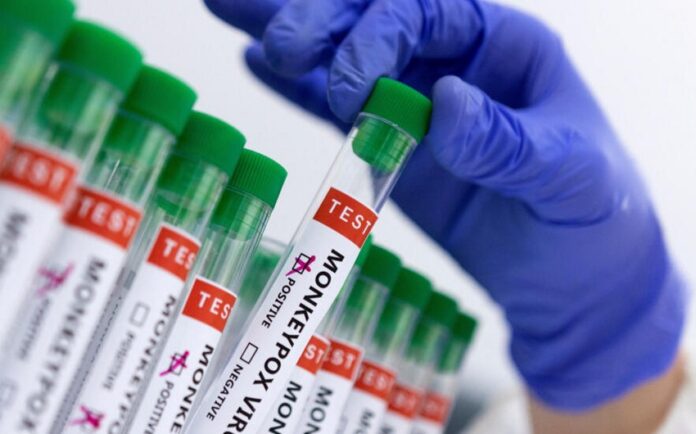About a week back, when outbreak of Monkeypox was reported in Pakistan, shivers went down among the Indian population not ready to take chances after a long onslaught of Covid19.
Death rate in India because of Covid19 pandemic has remained lowest in the world. The credit goes to multi-polar action of various agencies, State and Central governments and above all the people of India who showed an exemplary discipline in compliance to Government directions from time to time and exercise of due diligence which was missing in the people of many advanced countries.
Health authorities in India believe the threat level of Monkeypox (or Mpox) in India remains medium to low as on date, largely because of public awareness and readiness for vaccines and masks. This is also because the virus strain that infected Indian patients was West African Strain (Clade 2) which is less infectious compared to Central African Strian (Clade 1B). So far total number of infections since 2022 stands at 30. The last was reported in March 2024.

Monkeypox is a zoonotic viral disease. It was first identified in the Democratic Republic of the Congo and has now been declared a Public Health Emergency of International Concern on 14 August 2024 by the World Health Organization (WHO) due to its rapid spread across continents and its potential for significant public health impact.
Mpox is one of the more recent zoonotic diseases that have crossed from animals to humans, but it is far from the only one. Zoonotic diseases have been occurring throughout history. A steady increase new animal-specific viruses entering into human health system is worrisome trend the biologists are grappling with. Preparing drugs for these alien viruses adapting to humans is no small challenge.
Just this week, the Government has granted approval to Siemens Healthineers to manufacture Monkeypox detection kit. The “IMDX Monkeypox Detection RT-PCR Assay” will be manufactured at the company’s molecular diagnostics unit in Vadodara, with turnover capacity of 1 million reactions per annum. Test results will be available in just 40 minutes, as against 1-2 hours till now, thereby reducing the turnaround time for intervention. Kit has been clinically validated by ICMR-National Institute of Virology, Pune. It has an impressive 100 per cent sensitivity and specificity.
“The urgency for precise and accurate diagnostics couldn’t be more crucial than now. By providing India with advanced Assay kits tailored to combat Monkeypox, we are taking a proactive stance in battling this disease and prioritising prompt and precise detection that can truly make a difference in saving lives,” says Siemens Healthcare MD Hariharan Subramanian.
Monkeypox is part of a cocktail of zoonotic diseases that have crossed into humans over the centuries, with some escalating to fearsome global pandemics, such as Covid19, HIV-AIDS and Bubonic Plague. While it is less deadly than some other zoonotic diseases, its re-emergence highlights the ongoing risks posed by diseases that jump from animals to humans.
The emergence of zoonotic diseases highlights the need for vigilant monitoring and control measures. Organizations such as the WHO and Johns Hopkins University emphasize the importance of surveillance in wildlife and domestic animal populations, as well as stringent hygiene practices in areas where humans and animals interact closely. Vaccination, where available, and public awareness campaigns are also critical components of preventing the spread of these diseases. We already have our own share of human-specific viruses deal with. Those coming from animals around us must be prevented at all costs.



